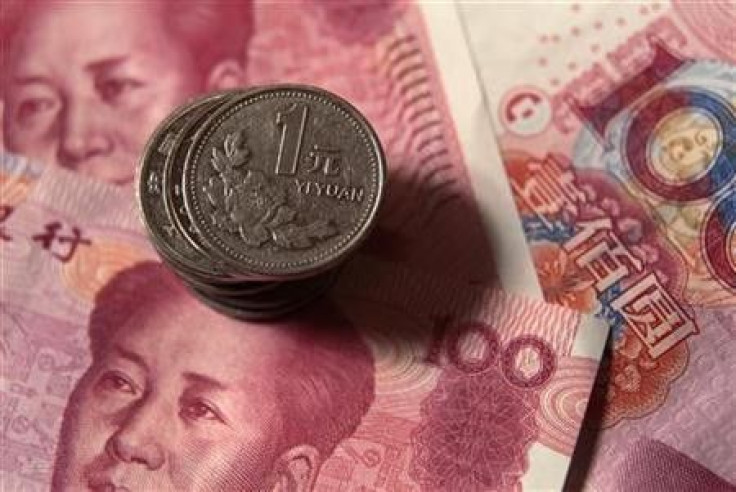Bank of China Reported Halting FX Swaps with some European Banks

Bank of China, a big market-maker in China's onshore foreign exchange market, has stopped foreign exchange forwards and swaps trading with several European banks due to the unfolding debt crisis in Europe, three sources with direct knowledge of the matter told Reuters Tuesday.
The European banks include French lenders Societe Generale, Credit Agricole and BNP Paribas, and the Bank of China halted trading with them partly because of the downgrading from Moody's, the sources said.
Another Chinese bank said it had stopped trading yuan interest rate swaps with European banks.
The sources declined to be identified because they were not authorized to speak with the media.
Contacted about this move by the Chinese banks, spokespeople for Societe Generale, UBS and BNP Paribas declined comment. Credit Agricole was not reachable for comment.
One of the sources said that Bank of China's decision may apply across its branches, including the onshore foreign exchange market.
"Apart from spot trading, all swaps and forwards trading (with the European banks) have been stopped," one source who is familiar with the matter told Reuters.
A public relations official with Bank of China declined comment.
Bank of China has also stopped trading with UBS AG in the wake of that bank's $2.3 billion loss from a rogue trading scandal.
"With so much bad news coming from Europe, I think more banks will follow suit," said one dealer, who declined to be named, when asked about the FX swaps.
Banks in Asia and elsewhere have been cutting credit lines and exposures to European banks through the past few months, unwilling to take on the risk of a default by Greece or any other peripheral European country.
European banks too have increasingly tapped swap lines offered by the European Central Bank to get around high funding costs for dollars and a broader unease about counterparty risk in interbank lending markets.
Other Chinese banks, including the Industrial and Commercial Bank of China <601398.SS><1398.HK>, China Construction Bank <601939.SS><0939.HK>, and Agricultural Bank of China <601288.SS><1288.HK>, told Reuters that they are conducting business as usual.
© Copyright Thomson Reuters 2024. All rights reserved.











